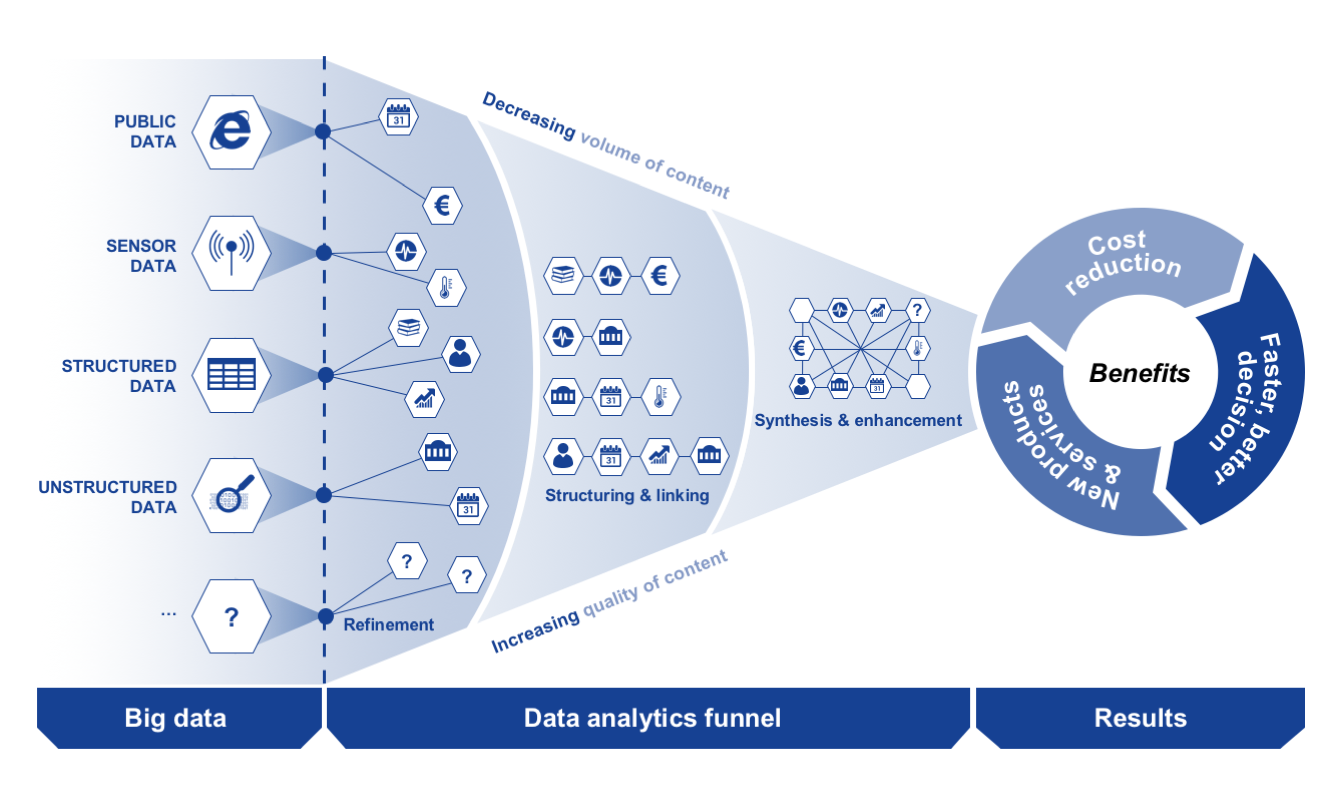Microsoft Misses Azure Deadline for EU Hosters, Shifts to 'Plan B' Amidst Antitrust Pressure
In a significant development for the European cloud market, Microsoft has failed to deliver on a crucial commitment made to address antitrust concerns raised by local cloud providers. The tech giant missed the deadline to launch a special version of its Azure cloud platform, specifically designed for European hosters, a product intended to level the playing field in the region's competitive cloud landscape. This failure has triggered a pivot to a 'Plan B' and raises the specter of renewed legal action if a satisfactory alternative is not found swiftly.
The saga traces back several years, rooted in complaints from European cloud infrastructure service providers who argue that Microsoft's licensing terms for key software like Windows Server, Exchange, and SharePoint unfairly disadvantage them when customers choose to run these workloads on non-Azure clouds. The Cloud Infrastructure Service Providers of Europe (CISPE), a trade group representing many of these local players, has been at the forefront of this challenge, filing a formal complaint with EU antitrust authorities in November 2022.
The Antitrust Complaint and the Proposed Solution
CISPE's core argument centered on the notion that Microsoft's licensing model created a 'tax' for running Microsoft software on competing cloud platforms. This effectively incentivized customers to migrate or remain on Azure, hindering the growth and competitiveness of European cloud providers. The complaint highlighted specific practices, such as higher costs, technical restrictions, and unfavorable terms, that made it significantly more expensive or difficult for customers to deploy Microsoft workloads outside of Microsoft's own infrastructure.
Facing potential formal antitrust investigations, Microsoft entered into discussions with CISPE to find a resolution. These negotiations culminated in a memorandum of understanding (MoU) in July 2024, where Microsoft committed to a series of measures designed to address the concerns. Key among these commitments was the promise to co-develop and promote a new version of Azure Local, formally known as Azure Stack HCI, tailored specifically for European hosters. This product, referred to as the 'Hoster Product' in the agreement, was envisioned as a way for European providers to offer Microsoft services with licensing terms and technical capabilities comparable to those available on Microsoft's global Azure platform.
The Hoster Product was intended to include several critical features previously seen as exclusive advantages of Azure, including:
- Multitenancy support for managing workloads from multiple customers on shared infrastructure.
- Unlimited virtualization and multi-session VDI (Virtual Desktop Infrastructure) capabilities for Windows 10, 11, and future versions.
- Pay-as-you-go licensing options for SQL Server, offering greater flexibility than traditional licensing models.
- Free extended security updates for eligible software, reducing costs for hosters and their customers.
These features were seen by CISPE and its members as essential to enabling them to compete on more equal footing with Microsoft Azure for customers who rely heavily on Microsoft software.
The Missed Deadline and the Failure of the Hoster Product
Microsoft committed to delivering this Hoster Product by the middle of the following month, setting a clear deadline for its development and availability. However, as industry observers and sources close to the negotiations warned earlier in the year, there were doubts about Microsoft's ability to meet this ambitious timeline, with suggestions that the engineering work involved had been underestimated.
These concerns proved prescient. A recent report from the European Cloud Collaboration Observatory (ECCO), an independent body established by CISPE to monitor the progress of the agreement, confirmed that Microsoft failed to deliver the Hoster Product by the agreed-upon deadline. The report was unequivocal, stating, "Both Microsoft and CISPE have now agreed that Azure Local will not deliver the full set of features outlined in the Agreement."
The failure of the Hoster Product marks a significant setback in the effort to resolve the antitrust dispute through this specific technical solution. It suggests that either the technical challenges were greater than anticipated, or perhaps the commercial and strategic implications of enabling competitors with such capabilities proved too difficult for Microsoft to fully embrace within the given timeframe and framework.
Shifting to 'Plan B': Seeking Commercially Equivalent Solutions
With the Hoster Product now off the table, Microsoft and CISPE have agreed to abandon this specific approach and move to what they are calling "Plan B." This new phase will focus on exploring "alternative commercially equivalent approaches to meeting the fair licensing commitments outlined in the Agreement," according to the ECCO report.
Francisco Mingorance, secretary general of CISPE, expressed disappointment with the failure of the Hoster Product but emphasized that the agreement itself remains in force. "It is disappointing that the proposed product did not deliver, but this is not the end of the Agreement," he stated. "Phase 2 opens the door to discuss alternative, commercially equivalent solutions that enable CISPE members and Europe’s cloud infrastructure providers to compete fairly, while still offering Microsoft's productivity tools to their customers.”
In an interview, Mingorance elaborated on why Plan B might, in some ways, be a preferred outcome for CISPE members. He noted that Azure Local, or Azure Stack HCI, typically requires dedicated hardware infrastructure. This means European hosters would have needed to make significant capital investments to upgrade or change their existing infrastructure to deploy the Hoster Product. A "commercially equivalent solution" under Plan B might involve changes to licensing terms or other mechanisms that do not necessitate such hardware overhauls, potentially allowing hosters to run Microsoft workloads more competitively on their existing, diverse infrastructure.
The underlying goal for European cloud providers and their customers remains the ability to run Microsoft software locally, within Europe, on infrastructure provided by European companies, without facing punitive costs or technical disadvantages compared to running the same software on Azure. This desire for local hosting is driven by various factors, including data sovereignty concerns, regulatory compliance (such as GDPR), and a strategic push for European digital independence, a sentiment that has gained traction in recent years.
Mingorance speculated on Microsoft's perspective, suggesting that the company's primary driver is likely to direct as much customer traffic and workload as possible to its own Azure platform. This strategic imperative could potentially conflict with enabling competitors to offer equally attractive environments for Microsoft software, explaining some of the difficulties encountered in developing the Hoster Product.
The Clock is Ticking: A Tight Deadline for Plan B
The shift to Plan B comes with a tight deadline. Microsoft has less than two months to propose concrete alternative solutions. These proposals must be submitted by July 10th, marking the first anniversary of the original memorandum of understanding. The pressure is high, as failure to propose and agree upon commercially equivalent solutions by this date could have significant consequences.
CISPE has made it clear that if Microsoft does not come forward with satisfactory proposals under Plan B, they are prepared to escalate the matter. This could involve filing another formal complaint with the European Commission, potentially triggering a full-blown antitrust investigation with the power to impose remedies and fines, unlike the voluntary agreement process overseen by ECCO.
Broader Context: Ongoing Scrutiny of Microsoft's Cloud Practices
The difficulties encountered in implementing the CISPE agreement are not isolated incidents. Microsoft's cloud licensing practices are facing increasing scrutiny across Europe and beyond. Just this week, a report co-authored by economic consultants and financially supported by Google, highlighted concerns that Microsoft's licensing continues to harm European cloud providers and customers. The report echoed CISPE's complaints, arguing that customers are effectively locked into Azure for legacy Microsoft workloads due to prohibitive costs or technical barriers on alternative platforms.
European cloud CEOs have voiced strong opinions on the matter. Mark Boost, CEO of Civo, stated that Microsoft's licensing has long been a barrier to fair competition, forcing customers towards Azure. Frank Karlitschek, CEO of Nextcloud, while noting Google's financial support for the critical report, agreed that big tech firms often bundle and gatekeep, creating lock-in. He called for strong enforcement of antitrust and related regulations like the Digital Markets Act (DMA) against all dominant players to ensure a level playing field.
Microsoft, for its part, maintains that it listens to legitimate concerns and has made changes. A spokesperson stated that while they are reviewing the latest ECCO report and are "excited about the new path forward with CISPE and its members," they view some criticisms, particularly those supported by large competitors like Google, as attempts to manipulate the regulatory environment for their own benefit.
The dispute with CISPE is just one facet of the regulatory challenges Microsoft faces in the EU cloud market. The Digital Markets Act (DMA), which aims to curb the power of large online platforms, could potentially impact how Microsoft bundles its services and interacts with competitors. Furthermore, the UK's Competition Markets Authority (CMA) has also examined Microsoft's licensing practices, although Microsoft has defended its strategy to the UK regulator.
The Financial Dimension and Competing Offers
Adding another layer to the story is the financial aspect of the original settlement. As part of the July 2024 agreement, Microsoft not only committed to the Hoster Product and a two-year suspension of audits for CISPE members but also made an unspecified financial payment to the trade association. Notably, CISPE is set to retain this payment regardless of whether Microsoft ultimately fulfills the technical commitments under the MoU, including the now-failed Hoster Product or the future Plan B.
Interestingly, sources previously revealed that Google had offered CISPE a larger financial sum specifically to *not* settle the complaint with Microsoft. CISPE ultimately chose Microsoft's proposal, believing it offered a path to address the fundamental issue of discriminatory licensing, which was the primary pain point for its members.
This detail underscores the high stakes and complex dynamics at play, involving not just regulatory compliance but also strategic positioning and financial incentives among the major players in the cloud market.
Reactions and the Call for Formal Enforcement
The failure of the Hoster Product and the shift to Plan B have elicited strong reactions from various stakeholders. Nicky Stewart, a senior advisor to the Google-supported Open Cloud Coalition, was critical, stating that Microsoft has a "track record of delaying, deflecting, and offering superficial commitments to avoid real change." She argued that the ECCO process, being based on a voluntary agreement, lacks the authority of formal antitrust enforcement and is "no substitute" for it. Stewart's comments highlight the view held by some that only a legally binding intervention from regulators can effectively address Microsoft's market power.
European cloud provider OVHcloud also weighed in, broadening the scope of the issue to include all major US hyperscalers. They emphasized the continued need for action against anticompetitive practices by dominant players in the EU cloud market. OVHcloud specifically pointed to the emerging field of Artificial Intelligence (AI) as a potential area where such practices could escalate, increasing the urgency for European authorities and the cloud ecosystem to scrutinize the behavior of large tech companies.
What's Next: The Path Forward Under Plan B
The focus now shifts squarely to Plan B. Microsoft must demonstrate a genuine commitment to finding alternative solutions that are truly "commercially equivalent" and address the core concerns of unfair licensing. What these solutions might look like remains to be seen, but they must achieve the same outcome: allowing European cloud providers to host Microsoft software for their customers without facing the significant cost and technical disadvantages that currently steer customers towards Azure.
Potential avenues for Plan B could include:
- Significant adjustments to the pricing and terms of existing Microsoft software licenses when used on third-party clouds, making them comparable to Azure costs.
- Offering new, flexible licensing models specifically designed for multitenant environments on non-Azure infrastructure.
- Providing access to technical support and updates for Microsoft software on third-party clouds on terms equivalent to those offered on Azure.
- Removing technical hurdles or restrictions that make it difficult to deploy or manage Microsoft workloads outside of Azure.
The next two months will be critical. CISPE members will be closely evaluating Microsoft's proposals to determine if they genuinely meet the standard of commercial equivalence and address the competitive imbalance. The independent ECCO body will likely continue to play a role in assessing the technical and commercial viability of any proposed solutions.
Should Microsoft fail to put forward acceptable proposals by the July 10th deadline, or if the proposed Plan B solutions are deemed insufficient, the likelihood of CISPE filing a new, formal antitrust complaint with the European Commission will significantly increase. Such a complaint could initiate a lengthy and potentially costly legal process for Microsoft, with the possibility of regulatory intervention forcing changes to its business practices in the EU.
Conclusion: A Critical Juncture for EU Cloud Competition
Microsoft's failure to deliver the promised Azure Hoster Product is more than just a missed deadline; it represents a critical juncture in the ongoing struggle for fair competition in the European cloud market. The initial agreement, while hailed as a potential path to resolution, has stumbled on the technical implementation of its key component.
The pivot to Plan B offers a renewed opportunity to find a solution, but the compressed timeline and the history of the dispute mean that trust is fragile. European cloud providers remain wary of Microsoft's intentions and capabilities to truly level the playing field through voluntary measures.
The outcome of the next two months will determine whether the parties can find a mutually acceptable path forward or if the matter will inevitably return to the realm of formal antitrust enforcement. The eyes of the European cloud ecosystem, regulators, and customers will be watching closely to see if Plan B can finally deliver the commercially equivalent solutions needed to foster a more competitive and diverse cloud landscape in Europe.


















